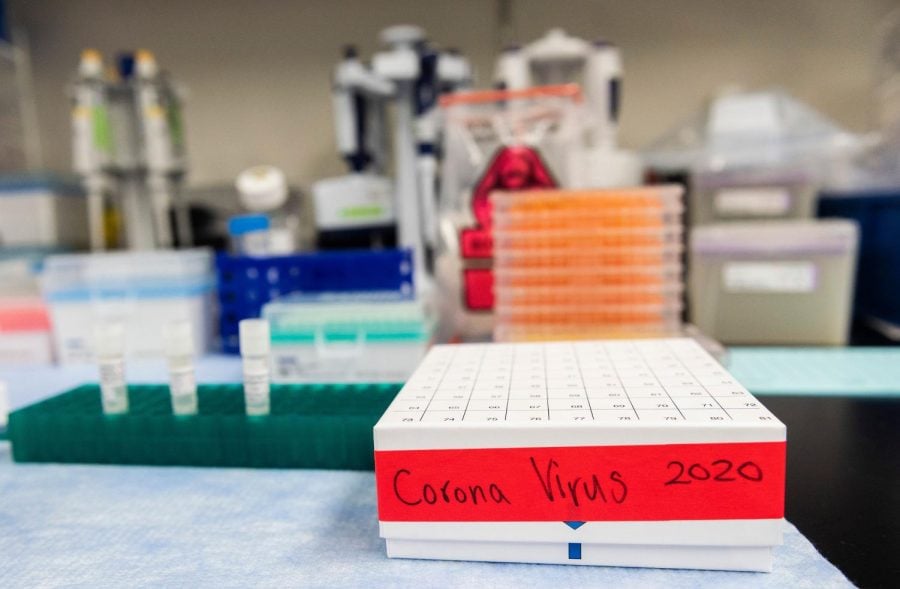NU professors discuss the possibility of mandating the COVID-19 vaccine
Andrew Caballero-Reynolds/AFP/Getty Images/TNS
Northwestern Medicine announced Pfizer COVID-19 vaccine registration Dec. 15. Feinberg physicians and students were among the first to receive it.
November 20, 2020
With drug makers like Pfizer and Moderna reporting promising results for their COVID-19 vaccines, they will likely soon be asking the Food and Drug Administration for approval for public distribution. One of the important questions that arises is whether Americans should be required to get vaccinated for COVID-19.
Feinberg Prof. Lori Post, director of the Buehler Center for Health Policy and Economics at Northwestern’s Institute for Public Health and Medicine, said the COVID-19 vaccine should not be mandated for all people. Vaccines can kill or make some people with auto-immune disorders very sick, she said. It’s also unclear, she added, whether the vaccine has adverse effects on subpopulations.
“The answer depends on if we have enough variants of the vaccine that are effective,” Post said in a news release. “Better strategies than a blanket vaccine mandate would be to prohibit children from attending schools or universities, employees from presenting to the office or block people from group events who are unvaccinated.”
Feinberg Prof. Tina Tan also said though vaccines may be mandated for those at very high risk, it most likely won’t happen for the general population. Especially, she said, since there is little to no information about the use of these vaccines in infants and children or in pregnant or breastfeeding women.
Regarding whether the vaccine can be legally mandated, Post said Americans need to understand that they have the right to not vaccinate, but they do not have the right to infect others.
Pritzker Prof. Juliet Sorenson said the Supreme Court has ruled in the past that the Constitution empowers state and local governments to enact and enforce laws in furtherance of public health, including vaccination requirements.
“That power has been upheld time and again, in the face of anti-vaxxers, global pandemics and more,” Sorenson said in a news release. “It will surely be challenged once again in the event of a mandatory COVID vaccine, but if there is a basis in science, then local vaccine mandates are on solid ground.”
Whether the vaccine ends up being mandated, Tan said mandating vaccination is hard to enforce and may backfire if people feel that the mandate is “heavy handed.” There are also downfalls, she said, such as people feeling that their right to refuse a vaccine is being compromised.
Tan added that mandating a vaccine may cause certain people to be skeptical about its safety and effectiveness.
“It is important to maintain public trust and not force a vaccine upon a person until that person has a chance to review the information and make their own decision as to whether they will get the vaccine,” Tan said in a news release.
Though many people would worry about the safety of the vaccine if it is mandated, Tan said safety should not be a legitimate concern.
Current technology has allowed for the rapid development of COVID-19 vaccines, but the normal steps for developing and licensing a vaccine were undertaken, Tan said.
“A vaccine that is licensed has to be proven to be safe and effective before the FDA will license the vaccine,” Tan said. “There has never been, nor will there ever be, a compromise on ensuring that a licensed vaccine is safe and effective.”
Email: [email protected]
Twitter: @vivianxia7
Related Stories:
— Adults should get measles vaccine, Feinberg professor says












